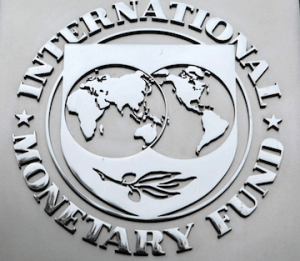Ghana needs sustainable domestic revenue strategy to skip IMF intervention
 Dr. Alex Ampaabeng, Fiscal Policy Specialist at OXFAM, has stated that Ghana requires a sustainable domestic income plan that will avoid resorting to the International Monetary Fund (IMF) for financial assistance.
Dr. Alex Ampaabeng, Fiscal Policy Specialist at OXFAM, has stated that Ghana requires a sustainable domestic income plan that will avoid resorting to the International Monetary Fund (IMF) for financial assistance.
“If there is investment in tax infrastructure, things that have to be taxed would be well captured and well accounted for and the government would be able to make a projection,” he said.
Dr. Ampaabeng was addressing a budget conference attended by civil society organisations and the media on this year’s mid-year budget review, which will be submitted to parliament in July by Mr. Ken Ofori-Atta, Minister of Finance.
He urged the swift approval of the tax exemption measure, which was part of the IMF’s 2015 conditionality, and encouraged the government to guarantee that property taxation and taxation of the digitised economy were well-structured and harmonised, since Ghana was losing billions of cedis as a result.
The budget conference provided ideas on four themes: fiscal, energy and mining, health, and education, and urged the government to include them in the forthcoming budget review.
Speaking on the power sector, Mr. Charles Ofori, Policy Lead on Climate Change and Energy Transition at the Africa Center for Energy Policy (ACEP), said it was critical to address the inefficiencies that existed, particularly at the distribution end of the value chain, because it was critical for revenue generation.
He observed that if financial viability at the distribution end was established, the other members of the value chain would be suitably rewarded for their services.
To address such inefficiencies, Mr. Ofori suggested that the government incorporated private sector engagement into the distribution value chain, while also ensuring that such participation was transparent, and merit based.
He stated that some critical issues that required the government’s attention included declining oil and gas production, citing an example, where delays in negotiations with successful bidders in the 2018 Bid and Licensing Round have implications for oil production and future oil investments.
As a result, he advised the government to complete the discussions in the 2018 Bid and Licensing Round, in which Eni and First E&P were successful bidders.
Concerning the gas industry, he stated that the government must guarantee that it optimised its local production potential, including action plans for expanding the country’s gas processing facilities, rather than expose it to unmeasured risks through LNG imports.
Briefing the media on issues in energy and extractive industries, he emphasised the need to remind the government to put in place appropriate measures to safeguard the sectors’ viability.
Concerning education difficulties, Mr. Cletus Sungdong, Policy Associate at Africa Education Watch, suggested that the government boosted the percentage of basic allocation to at least 50 per cent of the overall education budget to address infrastructural challenges at the primary school level.
According to him, the obstacles were a lack of structural growth as well as teaching and learning resources, and therefore, he urged the Ministry of Education to publish its procurement operations and financial reports on its website so that the public may learn about the state of the education sector.
On health issues, Alliance for Reproductive Health Rights Director Nii Ankobiah Annorbah-Sarpei proposed that the government separate the National Health Insurance Scheme (NHIS) fund from the consolidated fund and deposit revenue to the National Health Insurance Authority (NHIS) to facilitate NHIS operations.
It was suggested that the government created a programme to manage drug prices and manufacturing and eliminate VAT on luxury goods used in the production of sanitary towels.
Additionally, Nii Annorbah-Sarpei proposed that the government developed a clear road map with a funding plan for Agenda 111, as well as provide incentives to medical personnel to reduce the current migration or relocation crisis.
Mr. Ofori-Atta is set to give to parliament on Wednesday, July 13, 2022, the midyear assessment of the government’s budget statement and economic strategy, as well as a supplemental estimate for the fiscal year 2022.
Source: GNA
